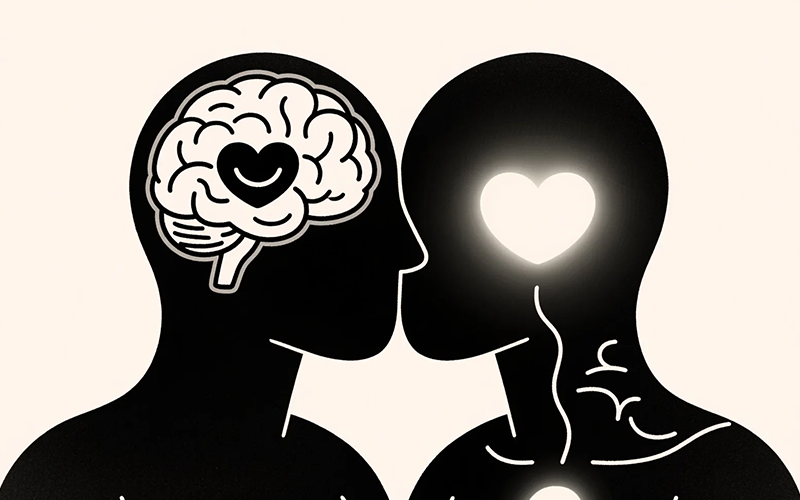In the ongoing conversation around human intimacy, few topics stir as much curiosity—and confusion—as oral sex vs vaginal sex. While both forms of sexual contact are widespread, deeply personal, and often interconnected, they differ significantly in physiology, psychological impact, and even neural satisfaction. Whether you’re seeking to better understand your body, strengthen your relationship, or simply explore informed choices, this guide dives into the subtle yet powerful contrasts between oral sex vs vaginal sex—through both scientific and emotional lenses.
Table of Contents

1.Understanding the Basics: Oral Sex vs Vaginal Sex
Before diving into details, it’s essential to define our terms. Oral sex typically involves using the mouth, lips, and tongue to stimulate the genitals. Vaginal sex, by contrast, refers to penile-vaginal penetration. Both are considered forms of sexual expression and pleasure, but the experiences differ dramatically. When comparing oral sex vs vaginal sex, context matters—whether it’s the environment, the emotional bond, or personal comfort levels.

2.Physiological Differences: How the Body Responds
From a purely physical standpoint, the sensations and mechanisms at play in oral sex vs vaginal sex are unique.
In oral sex, the contact area is relatively small—usually around 2 to 3 square centimeters. The tongue provides flexible, rhythmic motions combined with the warmth and moisture of the mouth. However, the pressure generated is notably lighter—approximately half the force that the vaginal walls produce through natural muscular contractions during penetrative sex.
Vaginal sex, on the other hand, involves internal stimulation that engages deeper nerve endings, pelvic muscles, and often leads to full-body responses such as uterine contractions and increased blood flow throughout the pelvic region. The friction, depth, and full-body involvement distinguish it greatly when examining oral sex vs vaginal sex biologically.

3.Neural Response: Pleasure, Timing, and Brain Activation
Here’s where things get even more fascinating. Recent studies using brain imaging techniques show that while oral sex can trigger faster nerve impulses—resulting in a quick rush of sensation—the reward centers in the brain may actually be 15% less active compared to vaginal penetration.
This doesn’t mean one is “better” than the other, but it suggests a difference in how satisfaction is processed neurologically. In oral sex vs vaginal sex, the former may deliver immediate gratification while the latter may trigger deeper, longer-lasting waves of neural satisfaction. That’s likely due to the vaginal walls’ dense network of pressure-sensitive nerve endings connected to regions of the brain associated with bonding and emotional fulfillment.

4.Psychological Impact: Intimacy and Identity
When evaluating oral sex vs vaginal sex from a psychological perspective, the distinctions become more personal.
Many individuals report that oral sex feels more “authentic,” intimate, or emotionally raw—especially when initiated without expectation of reciprocation. It’s often seen as a gesture of affection, devotion, or vulnerability, given the proximity and eye contact it frequently involves.
Vaginal sex, however, has traditionally been linked to reproduction and commitment in many cultures. This can influence how people emotionally interpret the act—sometimes seeing it as more meaningful or symbolic of deep relational bonds.
Interestingly, some respondents in qualitative studies expressed that oral sex vs vaginal sex creates a dynamic of giving versus merging. Oral is often about giving pleasure; vaginal sex can feel like a shared, unified experience. Both have emotional depth—just in different ways.

5.Health Considerations: Risk and Hygiene
In discussions of oral sex vs vaginal sex, it’s important to also consider sexual health. Both carry risks of transmitting sexually transmitted infections (STIs), though the transmission types and likelihood vary. For instance, oral sex can transmit herpes simplex virus, HPV, or gonorrhea, especially without protection. Vaginal sex carries broader STI risks and potential for pregnancy.
Good hygiene, communication, and regular testing are crucial regardless of the form of intimacy. Practicing safe sex—in oral sex vs vaginal sex—should never be an afterthought.

6.Cultural Narratives and Social Taboos
Cultural attitudes significantly shape how oral sex vs vaginal sex is perceived. In some societies, oral sex is still seen as taboo or less “serious,” while vaginal sex is considered the cornerstone of sexual expression or marital consummation.
This framing affects not just social behavior, but individual self-worth and guilt. It’s worth unpacking those narratives. Sexual expression—whether oral or vaginal—is a personal, consensual experience, not a moral scale. In truth, many healthy relationships embrace both as equal parts of their intimacy spectrum.

7.Which Is More Satisfying? It Depends
There’s no universal answer in the debate of oral sex vs vaginal sex. Satisfaction varies based on physical anatomy, emotional connection, cultural background, mental health, and even past experiences. Some women report more consistent orgasm with oral sex; others find vaginal sex more emotionally resonant.
What’s important is understanding your own body, boundaries, and needs. Partners should communicate openly about what feels good, what feels safe, and what brings joy.
Conclusion: It’s Not a Competition—It’s a Conversation
The comparison between oral sex vs vaginal sex isn’t about deciding which is superior. Instead, it’s about recognizing the unique roles each can play in physical pleasure, emotional connection, and relationship intimacy.
Whether you resonate more with the immediacy of oral or the depth of vaginal connection, embracing informed, open-hearted exploration is the healthiest path. Your body is not a battleground between choices—it’s a symphony of sensations waiting to be understood.
So the real question isn’t oral sex vs vaginal sex—it’s: What makes you feel safe, seen, and satisfied?




